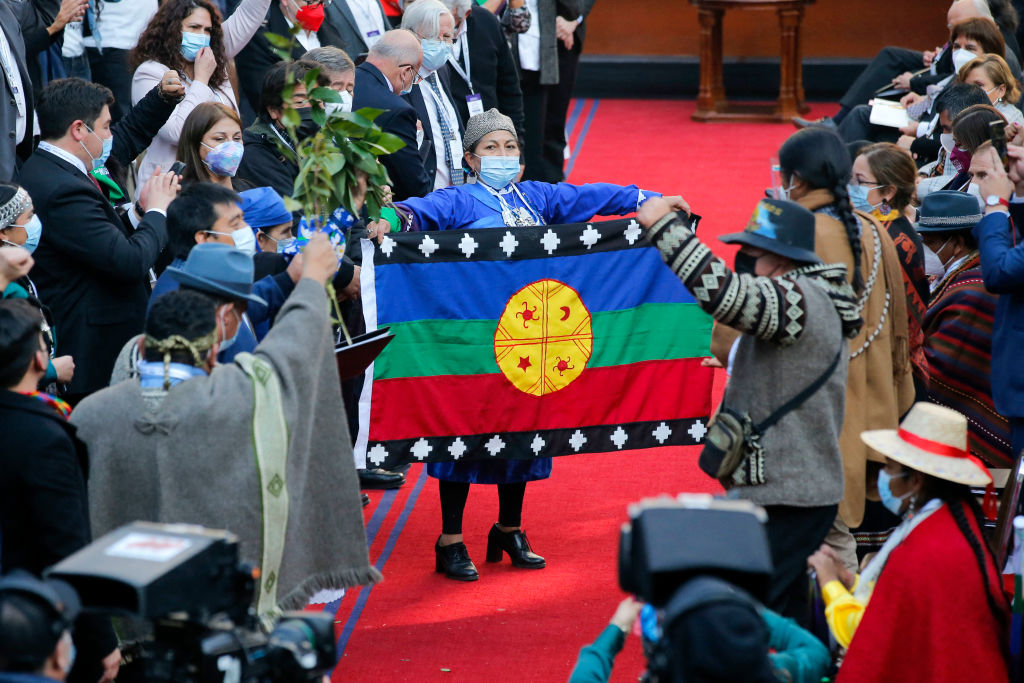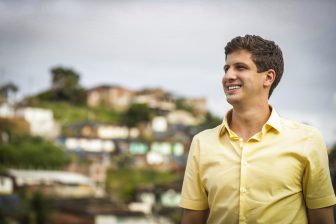SÃO PAULO – I was in for a surprise when I asked politically engaged university students and young political activists in Brazil how they felt about the recent upheaval in Cuba. “The whole debate about Cuba is like a caricature. I don’t really think it’s interesting,” one replied. Contrary to my experience of when I started teaching more than a decade ago, the majority had not even paid much attention to events there — despite self-identifying as being on the left of the ideological spectrum. While all opposed the U.S. embargo against the island, most did not consider Cuba to be particularly relevant to the issues they care most about, namely race and gender issues and the need to increase the number of minorities in positions of power across society.
Rather, several said Chile’s gender-balanced constituent assembly — the world’s first with a 50% gender quota — inspired them, as did the participation of indigenous Mapuche people. In the same way, several female students mentioned the feminist protest song “El Violador Eres Tú” (The Rapist is You), which captured people’s imagination across the globe during the height of Chile’s protest wave in late 2019.
Their relative apathy toward Cuba — a topic that was once certain to arouse passions in any discussion — seems to reflect a shift in the debate among some of Brazil’s younger leftists. The same is true about Venezuela, which until a few years ago guaranteed bare-knuckle debates between students supportive of and those opposed to the Chávez regime. While limited to anecdotal evidence, my conversations with left-wingers in Brazil born in the 2000s reveal that neither Che Guevara, Fidel Castro nor Hugo Chávez comes close to the inspirational power of Marielle Franco, the Black lesbian councilwoman from Rio de Janeiro assassinated in 2018. Indeed, it is not uncommon for left-wing students of this generation to call Franco’s murder the most relevant political event of their lives, leading them to engage politically in the first place — somewhat similar to what Lula’s election in 2002 symbolizes to those born in the early 1980s. When asked about the topics they most ardently care about, issues like increasing the political representation of women — and Black women in particular — indigenous communities and the LGBTQ population are regularly mentioned first. In addition to Chile, many of the young leftists who look beyond Brazil’s borders seem to consider Argentina’s social policies to be inspiring, especially vis-à-vis the recent decision to legalize abortion, as well as its new affirmative action law for transgender people.
This does not mean, of course, that several of the left’s more traditional concerns, such as reducing inequality and poverty, no longer matter to Brazil’s Gen Z leftists. Quite to the contrary, many of those I speak to, particularly students who come from poorer families, see themselves as products of the Workers’ Party’s social policies aimed at including groups that long had little access to Brazil’s public university system. To them, the fight for greater political representation is the logical next step of successful anti-poverty measures (even though the economic crisis after 2014 and the pandemic reverted a significant part of the progress made during the 2000s).
Perhaps most fascinating to me, their fight for greater political representation of minorities involves questioning the intellectual foundations and references of older generations, even on the left. I often hear that Marielle’s death and the government’s reaction (it remains unclear who exactly was behind the killings) have led young activists to wonder why the vast majority of authors they read are white men and how the Portuguese language includes what they consider to be elements of white privilege. Gen Z leftists are inventing new linguistic expressions and “subverting language”, using for example escurecer (to darken) instead of esclarecer (to lighten, or to clarify). Somewhat related are discussions about the need to “decolonize” knowledge, which often involves the search for alternative perspectives on politics and history, particularly from minorities whose voices were traditionally silenced.
It may thus come as little surprise that those young leftists who consider LGBTQ and women’s rights as a key political battle struggle to connect to many of the Latin American left’s most iconic leaders, ranging from Fidel Castro, Hugo Chávez and Rafael Correa to Evo Morales, who were socially conservative and oftentimes homophobic. (The same seems to be true for Peru’s new left-wing president Pedro Castillo, whose socially conservative views on issues such as abortion make him a complicated ally for those who prioritize things like women’s rights.) While the new generation of Chile’s leftist leaders — including 35-year old presidential candidate Gabriel Boric — are not yet household names among Latin America’s left, they seem to be far better positioned to capture the imagination of Gen Z leftists across the region than Cuba’s aging political elite.







